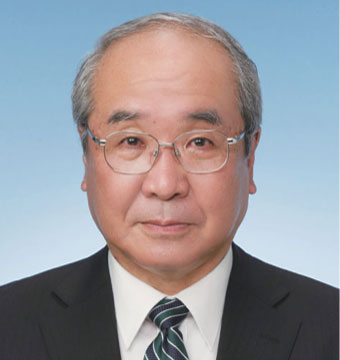Distinguished Achievement and Contributions Award

Dr. Masahiro Umehira graduated from the Faculty of Engineering, Kyoto University in 1978 and completed his master’s course at the same university in 1980. Thereupon, he joined Yokosuka Electrical Communication Laboratory, Nippon Telegraph and Telephone Public Corporation (currently NTT). He became a senior research engineer, supervisor at Wireless Systems Laboratories in 1995 and at Network Service Systems Laboratories in 1999. He became group leader/senior research engineer, supervisor at Network Innovation Laboratories in 2000, and director of Wireless Systems Innovation Laboratory, Network Innovation Laboratories in 2002. From 2006 to 2021, he was a professor at Ibaraki University.
Dr. Umehira has been engaged in research on modulation/demodulation technology for wireless systems over a long period and has been responsible for numerous noteworthy achievements. Particularly outstanding was his success in reducing the size and cost of time division multiple access (TDMA) modems for satellite communication and in widening the bandwidth of terrestrial mobile communication.
For TDMA satellite communication, he developed digital automatic frequency and phase control technology, phase compensation filters, and methods for fabricating compact and low-cost LSIs and ICs. These breakthroughs made it possible to enhance the performance of high-speed modems for TDMA satellite communication and to dramatically reduce the size of TDMA devices, paving the way for the application of TDMA to a wide variety of satellite communication systems. A totally unique transportable earth station was developed for TDMA satellite communication based on the technologies he developed. The earth station proved invaluable for making the ISDN service available in remote areas and for providing access to communications, such as an emergency telephone service, in times of disaster. It is noteworthy that the transportable earth station was used extensively in the wake of the Great Hanshin-Awaji Earthquake in 1995.
In the field of terrestrial communication, he developed the architecture, modulation/demodulation technology, error control technology, and quality of service (QoS) control technology that are needed to achieve broadband wireless access at tens of Mbit/s, a speed previously considered impossible. The development of these technologies enabled him to be the first to develop a prototype system and demonstrate the feasibility of an 80-Mbit/s broadband wireless access system using 24/27 GHz under the concept of multimedia mobile access communication (MMSC). He proposed coded orthogonal frequency division multiplexing (OFDM) to overcome frequency selective fading, a problem encountered in OFDM, using error correction codes. At standardization bodies in Japan, Europe, and the United States dealing with high-speed wireless LANs, he demonstrated that this technology enables high-speed, high-quality transmission even in a severe fading environment, thereby contributing to unifying the basic specifications for the relevant standards in these three regions. This technology has become one of several vital technologies that support high-speed transmission in modern wireless systems, such as wireless LANs and mobile phones.
At Ibaraki University, he drove his education and research activities by making the most of his wide-ranging experience and knowledge in wireless technologies. His expertise covers modulation/demodulation technology, cognitive radio and dynamic spectrum access for effective use of frequencies, wireless communication, technology for reducing interference from vehicle-mounted radars, and sensor systems.
For the achievements mentioned above, Dr. Umehira received the Achievement Award from the IEICE, the Minister’s Award from the Ministry of Education, Culture, Sports, Science and Technology, and the Telecommunications Advancement Foundation Award, and was designated as a fellow by the IEICE. He is dedicated to advancing the telecommunication field with a focus on radio administration and technology policy and to this end served as an expert member of the Information and Communications Council and as chair of a subcommittee and later chair of the Research and Development Evaluation Committee of the Council of National Research and Development Agencies. He has also contributed to the advancement of the IEICE by serving as chair of a technical committee and vice president and later president of an IEICE society.
As mentioned above, Dr. Umehira’s achievements in the information communications field have been truly outstanding and we are confident that he would be a worthy recipient of the Distinguished Achievement and Contributions Award.